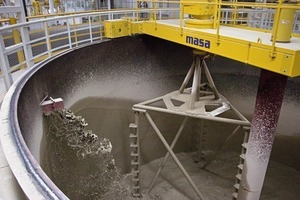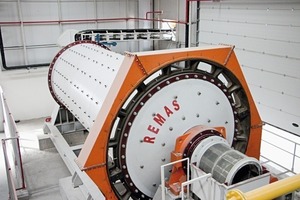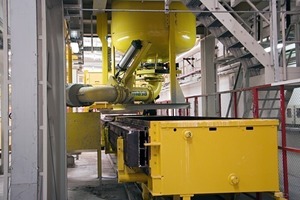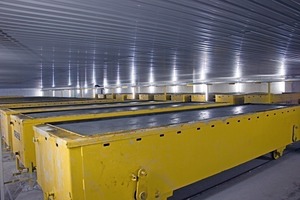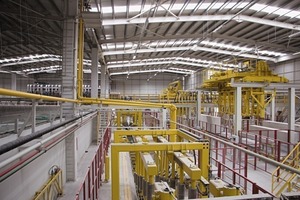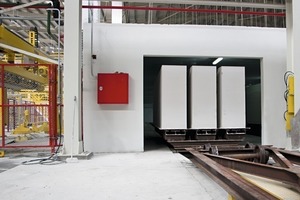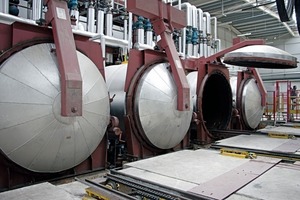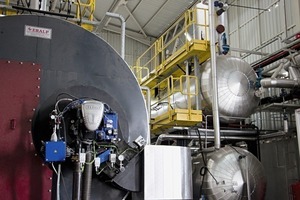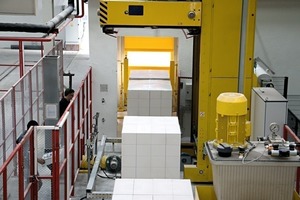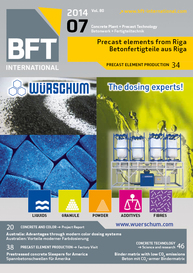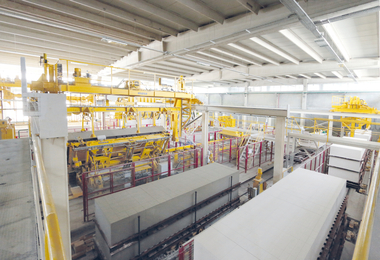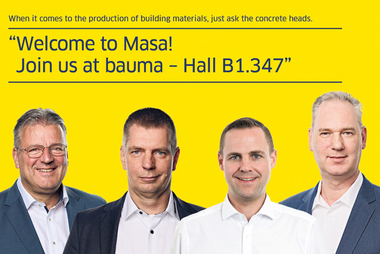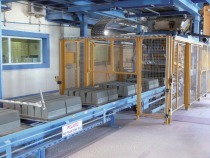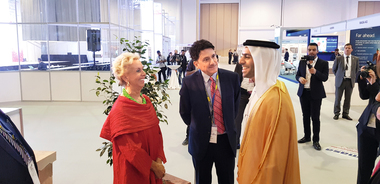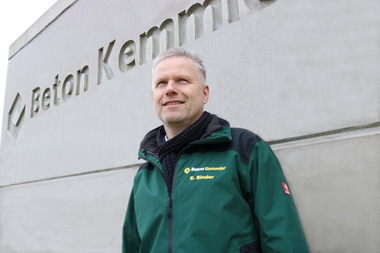Beton G: High quality, competitive price
Right from the beginning the mutual confidence in each other’s technical, professional and human competence were the basis of the successful cooperation between the Turkish manufacturer Beton G, and the German supplier of plants and machinery, Masa GmbH.
It all started in early summer 2012, when the initial technical and commercial discussions took place in the city of Gaziantep in Turkey. Just two months later the cooperation was sealed having a water pipe in the German city of Dresden. Right from the beginning the mutual confidence in each other’s technical, professional and human competence were the basis of the successful cooperation between the Turkish manufacturer of autoclaved aerated concrete, Beton G, and the German supplier of plants and machinery, Masa GmbH.
Together they developed an exact roadmap which was followed as part of an engineering package in order to achieve an optimum, economic combination of “local sourcing and/or local manufacturing” and the additional purchase of technology from Germany required for the implementation of the new AAC factory of Beton G, with Masa GmbH being also responsible for the technical design and specification of the plant components to be purchased locally.
Raw material supply ensured
It quickly turned out that very good local suppliers could be found for a lot of important components. This included reliable suppliers of ball mills, steam boilers and autoclaves besides good steelwork companies as well as companies for conveying engineering and assembly.
After examining the project documents together, Beton G decided in favor of a supplier of steelwork components and regarding the key components in favor of a ball mill of Remas and on steam boilers and autoclaves of Eralp.
In order to comply with the raw material specifications required for the production process, the customer himself complemented the overall concept by a complex material processing system including buckets, sieves, conveying and storage facilities. This forward-looking investment guarantees an efficient supply of the AAC factory with excellent raw materials in the long run.
Sand grinding and sand slurry storage
When choosing the mill, size and energy consumption were adapted to the locally available raw materials. In this way, Beton G was in the position to grind the silica sand primarily at night making use of the best electricity rates.
The engineering clearly defined the performance parameters and interfaces so as to provide for a smooth commissioning of this process step in the course of the implementation.
For storing of the sand slurry, on the one hand, it has been provided for an appropriate storage capacity of twice the volume of 250 m³; on the other hand, great importance was attached to a well-engineered and energy-optimized stirring mechanism with planetary stirrers. The required capacity installed for slurry storage just accounts for 0.072 kW/m³ of sand slurry per container – resulting in significant cost advantage for Beton G in comparison to simpler systems available on the market.
Mixing tower and filling of the mold
The fully automated mixing process is completely visualized as well as all other process sections. It is possible to store fixed formulations and to adapt the formulations to possibly occurring raw material fluctuations in a flexible way. The operator is able to simulate fluctuations expected and their potential impact in advance by means of so-called “laboratory formulations” allowing him to adapt the process accordingly. This possibility ensures Beton G the highest degree of availability at a consistently high quality of the products.
The rotating and swiveling filling device, that was especially designed in this way, reduces maintenance and cleaning works to a minimum and provides for an optimum mold filling.
Using the residual heat of the process, the fermentation area with temperature monitoring provides for a consistent expansion process and increases the process reliability.
Mechanical manufacturing process
Although alternative systems were offered, Beton G opted for the tilt cake system in which the cake is in vertical position after removing the mold and still after cutting remains in the this position for the autoclaving process. The cut off bottom layer that comes along with this concept is recycled and returned to the process. The implemented concept not only serves to avoid waste, but also has a positive effect on the quality of the finished product.
The steam boiler is designed for a capacity of 16 tons/h and equipped with a Saacke burner. The autoclaves have a diameter of 2.9 m allowing the factory a continuous daily output of 1,400 m³.
The sophisticated steam control system, which has been realized in cooperation of Masa and Eralp, guarantees an effective and economically sound use of energy. Both the fermentation area and the heated chambers upstream the autoclaves can be heated through a heat exchanger system using the residual heat generated in the autoclaving process. This reduces the energy costs of Beton G and increases the process reliability dependably.
Prepared for the global market
The fully automated packaging line enables different package sizes and package heights in a flexible manner. In this way, the payload area of the trucks can be loaded and used optimally. The flexible system allows for efficient transportation and a large selling radius.
The overall project has stood and continues to stand under the slogan “efficient production of a modern, versatile building material”. Masa GmbH completely fulfilled the requirements due to their experience gained over many years in the field of efficient building materials production, the competence on the full range of products as well as the manufacturing expertise and capacities available at Masa.
“The shortest distance between two points is a straight line,” the project manager in charge at Beton G, Oguz Bazoglu, explained the company’s decision taken in favor of the overall concept optimally preparing the company for the requirements of the global market.

